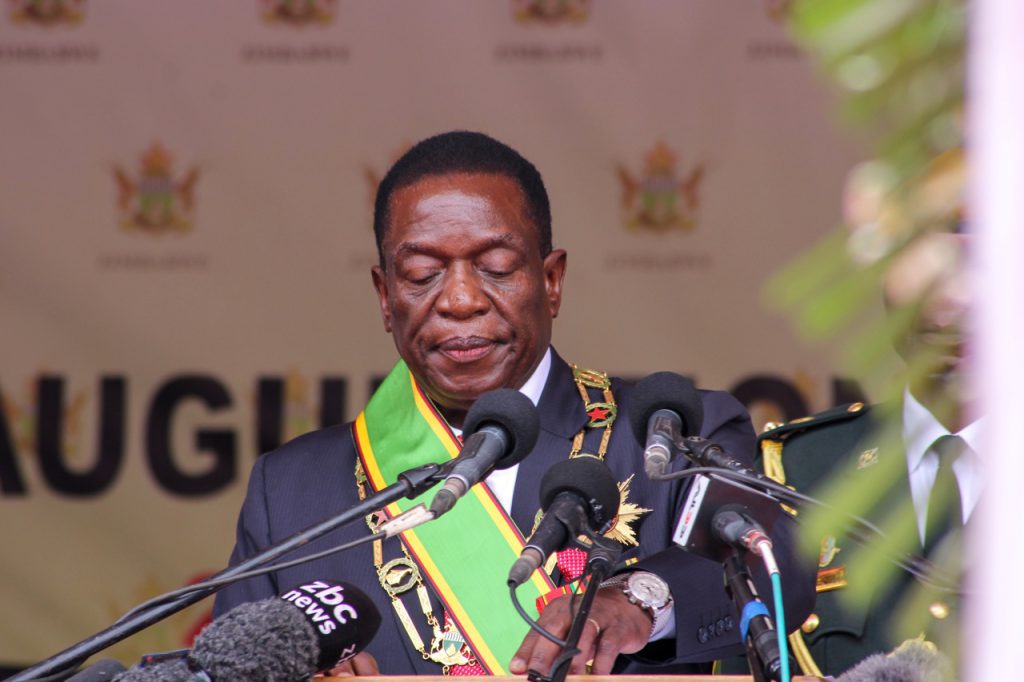Is there a secret to longevity? This health expert says 1,000% yes
In the era of social media, post-COVID, and with mental health at the forefront, a shift is taking […]

The presidential race sees 11 contenders locking horns. However, the primary face-off appears to be between the incumbent President Emmerson Mnangagwa, 80, representing the ruling ZANU-PF party, and Nelson Chamisa, 45, leading the opposition through the Citizen’s Coalition for Change (CCC).
Mnangagwa, a former intelligence chief who ascended to power after the 2017 military coup d’etat that deposed long-time leader Robert Mugabe, is seeking re-election after his narrow victory over Chamisa in the contentious 2018 election.
Despite the crowded field, political pundits lean towards Mnangagwa and ZANU-PF, a party that has wielded power since 1980, as favourites. Critics argue that the party’s domination of state institutions will likely tilt the electoral balance in its favour. State media has shown a bias by dedicating minimal airtime to the opposition, while the police frequently impede opposition rallies.
However, the CCC remains hopeful that rising public discontent over ZANU-PF’s economic mismanagement will serve as a catalyst, swinging the pendulum in their direction.
Zimbabwe’s economy, despite its abundant mineral resources, continues to be a significant electoral concern. The once promising economic rejuvenation under Mnangagwa has dwindled, leaving citizens to contend with critical electricity shortages and spiralling prices.
Zimbabwe’s inflation surged to an alarming 176% in June, positioning it among the highest worldwide. The Zimbabwean dollar, reestablished by Mnangagwa in 2019 after a ten-year dollarisation period, has seen a depreciation of over 80% within the current year.
Youth unemployment continues to be a pivotal electoral issue, particularly given that those under the age of 35 constitute 70% of the population. Zimbabwe’s struggle to attract international investment to refurbish its infrastructure and boost sectors such as manufacturing, tourism, and mining is largely attributed to its $14 billion foreign debt, nearly half of which is overdue.
Mnangagwa, known for speeches laden with nationalist rhetoric that evoke the African independence movements, argues that his government has nurtured economic opportunities through policies promoting local participation in sectors like mining and agriculture.
Chamisa, in contrast, criticises Mnangagwa’s policies as benefitting a small, connected elite. He promises an economic growth strategy, a crackdown on corruption, and an end to Zimbabwe’s international isolation. A CCC government, he pledges, would introduce fiscal discipline, restore human and property rights, and draw in investment.
Over 6.6 million people have registered to vote in this year’s election, surpassing the 5.7 million registered in 2018, according to the electoral commission.
To secure the presidency, a candidate must garner more than 50% of the vote. If an outright winner doesn’t emerge, a run-off between the top two candidates is scheduled for October 2. Parliamentary and local council candidates only require a simple majority of the votes cast.
Unfortunately, Zimbabwe’s sizeable diaspora, predominantly residing in neighbouring South Africa, will not be allowed to participate in the election.

In the era of social media, post-COVID, and with mental health at the forefront, a shift is taking […]

With its fast speeds and revolutionary potential, 5G stands out as a noteworthy milestone in the field of […]